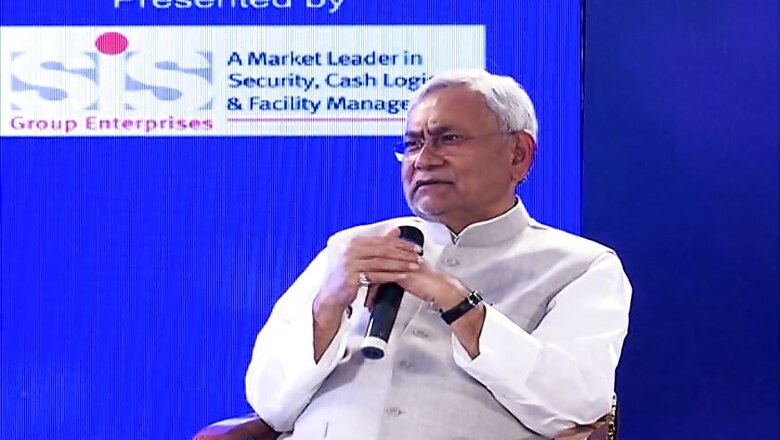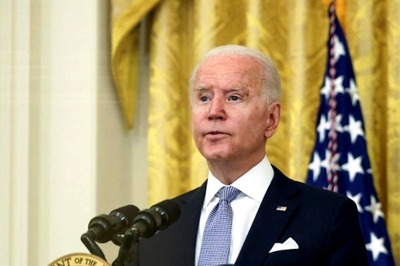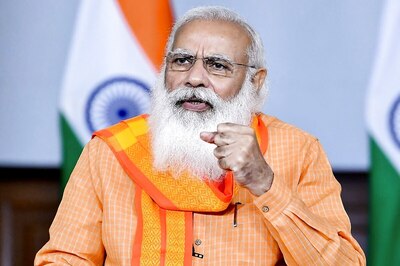
views
Patna: Setting the pitch for the next assembly polls, Bihar chief minister Nitish Kumar has called for a rethink on the discourse around migration for employment from one state to another and on development associated with big-ticket industrial investment.
"States have been created purely for administrative purposes. Anyone as an Indian citizen can go and seek employment anywhere in the country. We need to relook at this entire debate surrounding migration,” Kumar said in Patna at Network 18 event, Rising Bihar.
“Green revolution would not have been possible without people from Bihar. Similarly, if migrants from the state now settled in Delhi decide not to work for a day, the national capital would come to a standstill,” Kumar added.
His government, he said, had laid emphasis on creating a skilled and educated human resource, which can seek jobs anywhere in the country.
Kumar would be seeking a fourth term in office in 2020, and job creation within the state is one of the biggest challenges he has faced during his tenure.
He accepted that “big-ticket investment” is a problem in a land-locked state like Bihar and insisted that the state government has instead explored employment generation in other sectors like food processing and Information and Technology.
“Development does not mean only big industries are set up and only a selected few derive benefits from it. Development should be for one and all,” he said at the ETV Bihar event.
The Bihar CM, during his inaugural speech, also dwelt in great details on social sector schemes and reformative laws that the JD(U)-led government in the state has enacted during the current term.
“Prohibition will not fail. There are some people in the society whose actions can lead to a few incidents.” said Kumar in reference to deaths being caused due to consumption of spurious liquor in a state that has enacted prohibition laws two years ago.
He also defended strict implementation of anti-dowry and child marriage laws by his government.
Responding to allegations that some of these statutes were draconian in nature, Kumar insisted that measures taken by the state government have got overwhelming support from the poor and women, especially in rural areas.
Calling for a debate on reservations in the private sector, he said that new provisions aimed at positive discrimination can be considered in the light of limited job opportunities in the public sector. He, however, insisted that benchmark for reservations should be social and not economic backwardness.
“This is part of our constitution, debated and well thought out by our founding fathers,” he said.




















Comments
0 comment